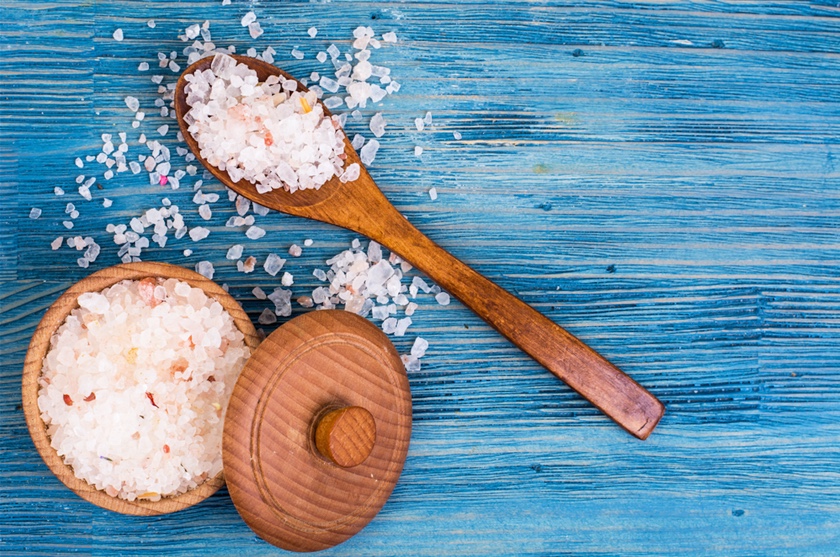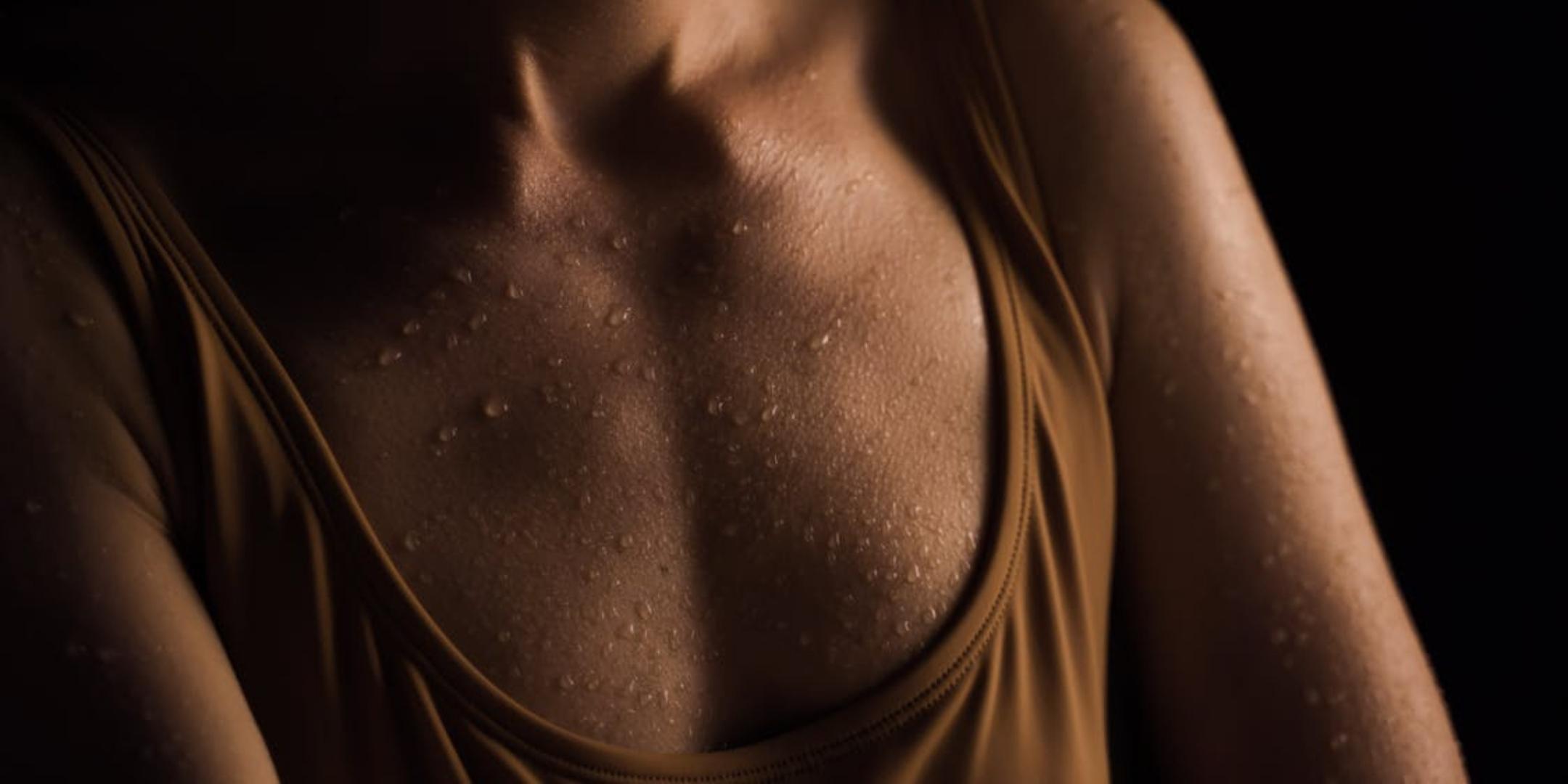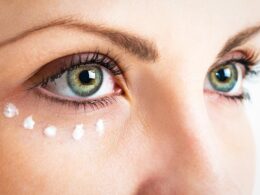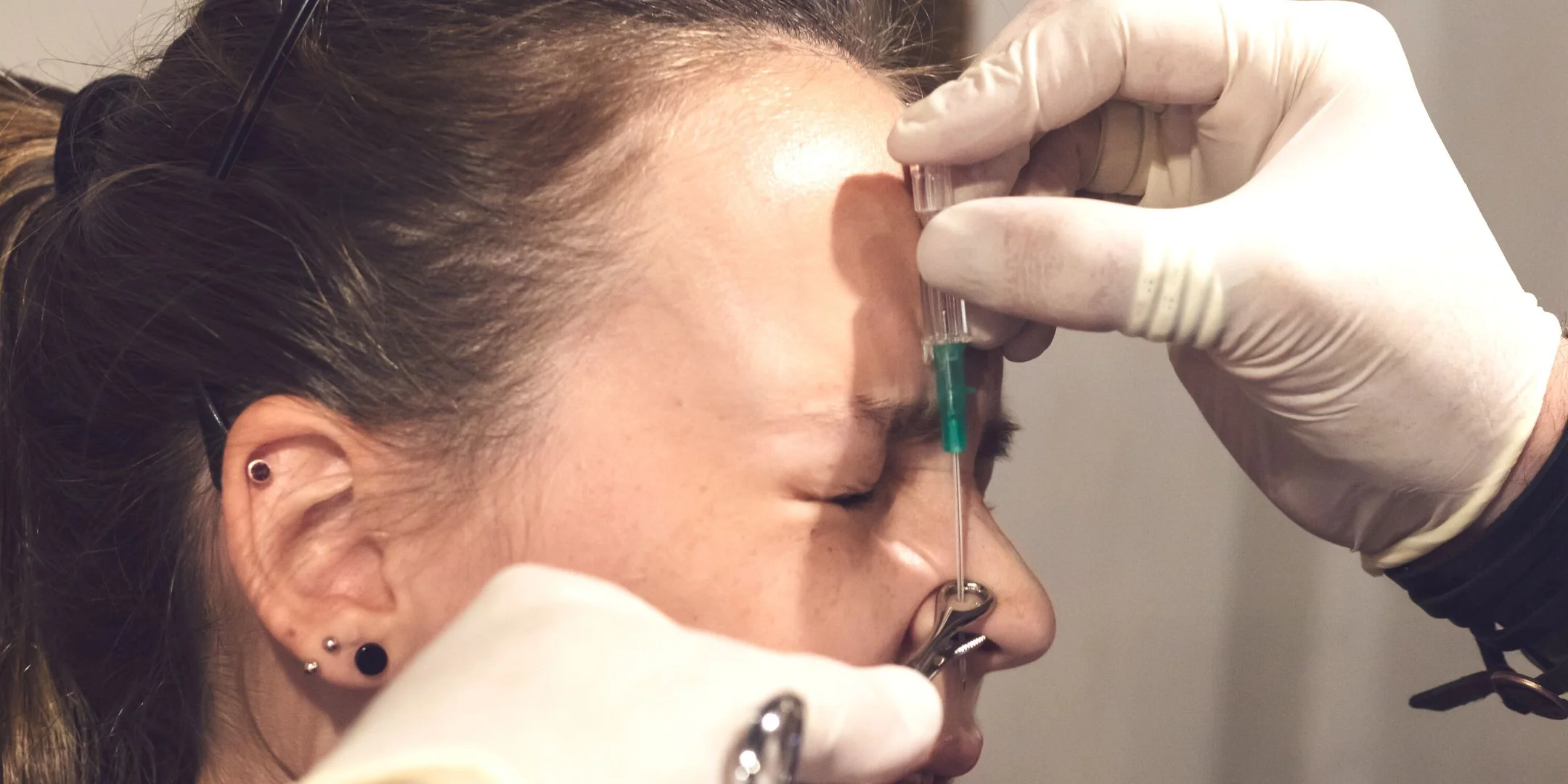Most of us think of sea salt as a delicious coarse-grained salt that we sprinkle on salads. But it isn’t just foodies searching the Earth for the latest, greatest variety of sea salt — these potent granules are also an important part of advanced spa treatments and smart, daily skincare regimens.
Mineral rich, natural salts used for skin treatments are sourced from exotic locations all over the world. Hundreds of varieties are available: some salts are distilled from deep, clean ocean water. Other come from ancient salt lakes like the Dead Sea.
These natural salts find their way into a full spectrum of beauty products and high-end spa treatments, from luxurious bath salts to rich exfoliating sea salt scrubs.
Sea salt and other natural salts have been shown to have a wide variety of skincare benefits. They not only create a smooth, healthy skin texture, but have been shown to treat a variety of skin conditions without resorting to harsh chemicals or medications.
Sea Salt and Skin Care
So why are salts good for your skin? When we think of salts, we typically think of table salt which is dehydrating and harsh. Sea salts are a different bird altogether.
One of the most important differences between sea salt and standard table salt is that sea salt has higher levels of naturally occurring minerals. Repeated use of sea salt skin products and scrubs not only improves the texture of the skin through exfoliation, but also strengthens the skin and improves overall hydration.
Here are four ways salt helps keep your skin glowing.
Exfoliation
As we all know, dead skin cells are responsible for old, tired-looking skin. An important part of high-end spa treatments is to clear away dead skin to encourage newer, younger skin cells to grow in their place.
Sea salts exfoliate in two different ways. By slightly drying the outer layer of skin, sea salts encourage dead skin to flake off. And the natural, coarse grains of sea salt body scrubs are an excellent, skin-friendly way to exfoliate.
The exfoliating properties of sea salts also encourage absorption of moisture through the skin barrier. This is one reason many professionally formulated sea salt treatments also include moisturizers.
Moisturizing
As we age, our skin starts to lose its natural moisture. Essential minerals found in sea salt — magnesium, zinc, sodium, calcium and potassium, namely — play important roles in promoting the intercellular communication that skin needs to stay healthy.
By increasing the levels of intercellular communication in our skin, we can jumpstart our cells into action and improve the skin’s overall quality and texture. Sea salt’s magnesium content also has a plumping effect on the skin because of its natural chemical ability to bind with water.
Natural Antiseptic Properties
While not as powerful as an antibiotic, salt’s ability to absorb moisture has long made it a useful preservative and mild antiseptic.
Salt’s ability to temporarily alkalinize the epidermis can inhibit bacterial growth, while salt’s isotonic properties also make it mild enough for the skin.
Anti-Aging
Sea salt’s high magnesium content makes it a powerful weapon in the fight against aging. By combining sea salt’s natural abilities to exfoliate and prevent bacterial growth with magnesium’s ability to stimulate intercellular communication, sea salt sets the stage for increased cell growth. And faster cell growth means slower aging. It’s no wonder sea salt is increasingly used as an additive in skincare treatments.
Top 5 Salts for Facial Skincare
While there are far too many kinds of salts to list here, several favorites are worth mentioning.
Most sea salt is gathered by dehydrating ocean water and collecting the salt that remains after the seawater evaporates. That’s where some of the differences become noticeable — the mineral contents in salts can create beautiful colors and offer rich, therapeutic effects.
1. Dead Sea Salt
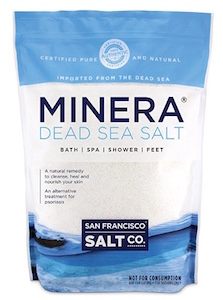
Sourced from the Dead Sea between Israel and Jordan, Dead Sea salt has been used for centuries for its powerful therapeutic effects. Dead Sea salt is extremely mineral rich. Unlike traditional sea salts, it is only 2.5% sodium chloride, while normal salt in ocean water is almost entirely (85%) sodium chloride.
2. Natural Black Salt
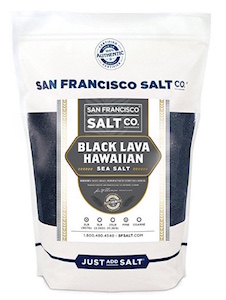
This exotic-looking black salt is filled with powerful antioxidants and minerals. Black salt gets its color from cooled ancient lava flows, often formed when searing hot lava solidifies after reaching sea water. It’s rich in sulfur, which gives it a mild smell. Its coarse texture makes an excellent exfoliant.
3. Pink Himalayan Salt
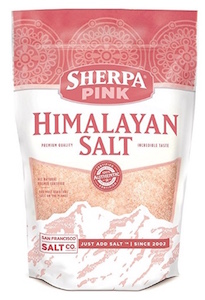
While not technically a “sea salt,” Pink Himalayan salt has been highly sought after since the days of Alexander the Great. Found high in the Himalaya mountains, this beautiful pink-colored salt is rich in iron and halite, and is often used in top skin care products.
4. Maldon Salt
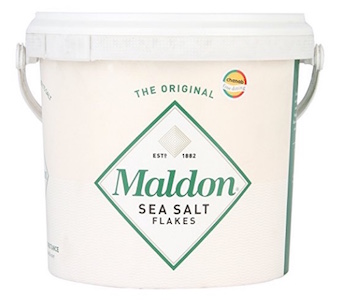
These interesting pyramid shaped salt crystals come from British Isles, and are made from dehydrating natural salt water. Maldon salt is an extremely pure white color and has long been used both in cooking and as a natural therapeutic in baths.
5. Epsom Salt
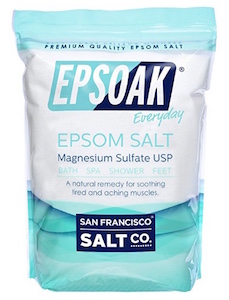
While Epsom salt isn’t technically a “salt” we’re going to mention it here as it’s called a salt, and its skincare benefits are near legendary. Epsom salt is composed of magnesium sulfate, and is most commonly used as a famously relaxing bath salt. An Epsom salt bath can plump the skin and leave your whole body with a smooth and supple feel.
Halotherapy: Salt Treatments for Skin Conditions
Since ancient times, men and women have sought out salty, natural hot-springs. These springs were well known to improve the condition and texture of the skin, and for their medicinal properties.
Here’s how you can use salt in your bath to treat common skin conditions.
Psoriasis
Dead Sea salt and Epsom salts can help relieve some of the symptoms of psoriasis. The salts help remove scaly skin and ease psoriasis-related itching.
Add Dead Sea salts or Epsom salts to a warm water bath as directed, and soak for at least 15 minutes. You’ll want to moisturize afterwards as long periods of salt immersion can have a drying effect on the skin.
Eczema
Both sea salts and Epsom salts can also help relieve the symptoms of eczema. While it’s common knowledge the eczema sufferers need to keep their skin moisturized, the drying effects of salt are only half the story. Sea salt and bath salts also function as a mild antiseptic that can help the skin fight off mild infections which are common among eczema sufferers.
Dermatitis
Sebhorrheic dermatitis sufferers have long known the benefits of sea salt and bath salts. Even swimming in the ocean often results in a reduction of symptoms.
If you don’t have an ocean handy, try using 2 teaspoons of sea-salt per liter of warm bath water. You’ll want to soak for 15 to 20 minutes and be sure to moisturize afterwards.
Dry Skin
It might seem counterintuitive to use sea salts for dry skin. But with sea salt’s lower levels of sodium chloride and rich mineral contents, professionally formulated skin treatments with sea salt have been shown to moisturize and protect the skin — and have wonderful anti-aging effects as well. Sea salt can also help loosen dead skin cells and dandruff, leaving moisture rich skin cells visible.
Acne
Sea salt scrubs can be used to treat acne in several different ways. The gentle exfoliating effects of sea salt can help unclog pores which are often the cause of acne, while its natural anti-microbial properties can decrease the risks of bacterial infection. Furthermore, magnesium’s ability to increase intercellular communication means your skin will make your acne heal and clear faster.
With all these amazing skincare benefits, it would be easy to forget that sea salt also does a body good on the inside. The rich minerals that sea salt contains make a great, healthy addition to food as well as skin creams.
Just remember that not all salts are edible. And just because pure sea salt works great on your skin and in your salad, don’t assume that the same is true of every variety of salt out there.





